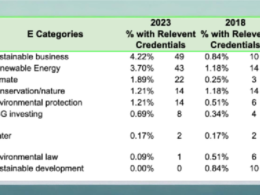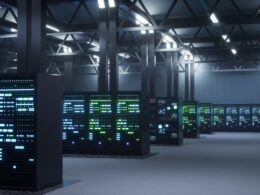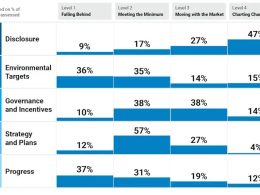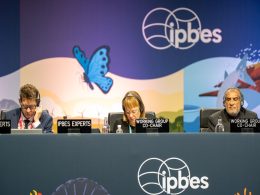Sysgration has been awarded the Bronze for Asia’s Best Supply Chain Reporting at the 11th Asia Sustainability Reporting Awards (ASRA), recognising the company’s commitment to transparent, responsible and forward-looking supply chain practices. In this exclusive interview, CEO Mark Lee reflects on what the recognition means for the organisation and its leadership.
“We believe transparency is not just a reporting requirement but a responsibility,” he says, emphasising how the award affirms Sysgration’s dedication to embedding sustainability into every aspect of its supply chain operations. From climate-risk assessment to green procurement, Lee discusses the company’s sustainability vision, strategic priorities and the evolving role of leadership in shaping resilient, low-carbon value chains.
Congratulations on your company’s success at the Asia Sustainability Reporting Awards. What does this achievement signify from a leadership perspective?
This achievement reflects our strong commitment to corporate responsibility and reinforces our reputation and competitiveness in the market. It affirms the clarity of our leadership vision and the effectiveness of our execution. At the same time, it highlights our focus on continuous improvement and innovation, while strengthening the trust and relationships we share with our stakeholders.
How does sustainability fit within your overall business strategy and long-term value-creation goals?
Sustainability is deeply integrated into our core business strategy. We take climate risks and social challenges into account in all our assessments, and we ensure that sustainability is reflected in every decision and long-term goal we set. At the same time, we continue to attract and develop talented professionals to design sustainable products, expand our presence in the green market and enhance our ability to create long-term value for consumers and investors.
What role do you personally play in setting and steering the sustainability agenda within the company?
My role is to establish the overall vision and direction for integrating sustainability into the core of our business. I work to ensure that our sustainability priorities align with our mission and guide the company towards long-term, responsible growth.
Many CEOs now see sustainability as a competitive advantage. How has it shaped innovation, market growth or stakeholder trust for your organisation?
Sustainability has driven significant innovation within our organisation. To reduce environmental impact and increase social value, Sysgration has developed low-carbon products, introduced automated production processes and improved operational efficiency. These efforts have reduced costs and strengthened stakeholder trust, enabling us to build long-term, cooperative relationships.
Why do you believe sustainability reporting is vital for corporate leadership today?
Sustainability reporting has become essential across global supply chains and capital markets, and companies that fail to report risk losing partnerships and investment opportunities. It demonstrates a company’s public commitment, enhances transparency and shows leadership’s attention to environmental, social and governance issues. Strong reporting also reflects leadership accountability and a clear commitment to the organisation’s core values.
How do you ensure that sustainability performance remains a board-level priority amid other business pressures?
We keep sustainability at the forefront by providing regular training for board members on ESG trends, regulatory requirements and market expectations. Sustainability is embedded into our governance structure through a dedicated sustainability committee, led by board members, which oversees goals, risks and performance. This ensures that sustainability remains a central part of our culture, identity and long-term strategic direction.
Could you share an example of a major decision or investment where sustainability considerations played a decisive role?
A key example is our decision to establish a production facility in Plano, Texas. Texas leads the United States in wind and solar energy generation, making it an ideal location for low-carbon manufacturing. By introducing fully automated production lines, we improved efficiency, reduced emissions associated with transportation and enhanced our ability to serve major customers locally. This approach aligns with ESG investor expectations, strengthens our brand image and supports recognition from leading global clients.
As regulatory frameworks such as ISSB gain traction, how do you view their impact on Asian businesses?
The ISSB standards create a globally consistent framework for sustainability disclosure, enabling companies across regions to compare ESG performance on a unified benchmark. As capital markets increasingly factor sustainability into valuations and risk assessments, companies that do not disclose such information may face financing challenges or reputational issues. For Asian businesses, adopting ISSB standards can attract international investors and build a more transparent and resilient operating model, providing a competitive edge in the global market.
Looking ahead, what are your top three sustainability priorities for the next three years?
Over the next three years, we aim to strengthen climate-risk management and improve carbon disclosures, including developing a complete inventory of Scope 1, 2 and 3 emissions. We also plan to enhance ESG integration across our supply chain by encouraging supplier transparency and implementing green procurement mechanisms. In addition, we will work to embed sustainability more deeply into our organisational culture by strengthening employee awareness, engagement and proactive action.
What message would you like to send to your peers and the wider business community about responsible leadership in this decisive decade for climate and sustainability?
Responsible leadership requires viewing sustainability as the foundation of value creation rather than an additional task. It should be seen not as a cost or obligation but as a driver of competitiveness and long-term opportunity. Leaders must integrate sustainability into their mission, strategy, product design, supply chains and talent development, focusing on long-term value instead of short-term gains. Above all, meaningful progress demands collaboration, as sustainability cannot be achieved in isolation; it requires collective action and strong cross-border partnerships to build a truly sustainable ecosystem.





















